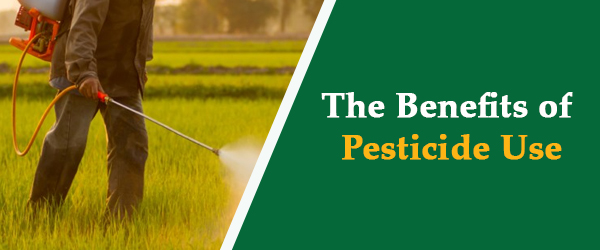PESTICIDE USE
Pesticide Use
Pesticide use is an age-old practice that dates back to pre-roman civilization, centuries before Jesus Christ was born. Pesticides are synthetic chemicals, natural substances, mixtures used to prevent, repel, control populations of harmful pests and protect crops from potential yield.
|
GROUP
|
use
|
|---|---|
|
Insecticides
|
To control insects
|
|
Fungicides
|
To control Fungus
|
|
Nematicides
|
To Control Nematodes
|
|
Bactericide
|
To control Bacteria
|
|
Herbicide
|
To control weeds
|
|
Molluscicide
|
To control molluscs
|
|
Acaracide
|
To control mites
|
|
Viricide
|
To control viruses
|
|
Rodenticides
|
To control rodents
|

Since the green revolution of the 1960s, there has been an exponential increase in pesticides use. It is estimated that approximately 5.2 billions pounds are applied annually. However, research findings indicate that a significant amount of global production would be affected without pesticides. They are not restricted to agriculture but applied in homes for controlling flies, cockroaches, rodents and other pests.
Benefits of Pesticide Use:
- Increased agricultural productivity
- It is the only means for controlling certain pests
- Reduction of costly input such as labour and fuel
- Providing a reliable supply of agricultural produce
- Increased profits
There is no doubt that agrochemicals have had a positive impact on food security but increased use is becoming a global concern. There is a positive relationship between increased use, biodiversity decline, environmental degradation and some chronic diseases in humans. Presently there is a dire need for production systems that enhance food security by producing better quality foods using fewer chemicals. The adoption of eco-friendly technologies that protect ecosystems services and maintain productivity is the preferred option.
Effects of Pesticides on the Environment
When pesticides are applied to a target pest or disposed of, they have the potential to pollute the environment. On entering the environment pesticides can move from the target site through adsorption, leaching, volatilization, spray drift, and runoff. Some pesticides applied according to specification can have positive effects on the environment but the highly hazardous ones can cause irreversible impacts even when used at the recommended rate. Glyphosate, the most widely used herbicide has been suppressing many beneficial species such as the nitrogen-fixing bacteria in the soil. Several organochlorines such as DDT, dieldrin, endrin have been banned globally due to their toxicity and persistence in the environment. After banning those substances for decades, traces are still found in some ecosystems. Copper an active ingredient for controlling bacteria and fungi can remain as a contaminant in the soil for decades.
Effects of Pesticides on Human health
How toxic are pesticides to human health? The answer to this question is dependent on the active ingredient and the health effects being investigated. Apart from the active ingredients, pesticides also contain inert ingredients such as solvents, surfactants, preservatives, that may have toxic effects which are distinct from their active ingredients. Further, the full impact of some of the most hazardous substances used in agriculture and the household is unknown to health professionals. Investigations are ongoing. When using pesticides mitigation measures should be enforced to reduce exposure at all times. Some adverse effects of pesticides on human health are as follows
- Disruption of the endocrine system
- Have been linked to some cancers
- Reproductive disorders
- Have been linked to chronic diseases such as diabetes


